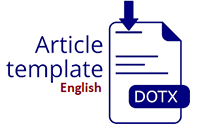POST-PANDEMIC ECONOMIC RECOVERY IN INDONESIA: A SYSTEMATIC LITERATURE REVIEW ON KEY DRIVERS, CHALLENGES, AND POLICY IMPLICATIONS
Abstract
PURPOSE - The COVID-19 pandemic has profoundly disrupted Indonesia’s economy, exacerbating structural vulnerabilities and necessitating targeted recovery strategies. This study conducts a systematic literature review (SLR) to synthesize empirical and theoretical insights on the key drivers, challenges, and policy implications of Indonesia’s post-pandemic economic recovery.
METHODOLOGY - By analyzing 45 peer-reviewed articles, government reports, and international organization publications (2020–2023), this research identifies critical drivers such as digital transformation, government stimulus programs, resilience of micro, small, and medium enterprises (MSMEs), and increased foreign investment. However, persistent challenges—including labor market imbalances, regional disparities, inflationary pressures, and global economic uncertainty—hinder equitable recovery.
FINDING - The findings underscore the need for adaptive, inclusive policies that balance immediate economic stabilization with forward-looking reforms. This study contributes a comprehensive framework for policymakers to navigate post-pandemic recovery complexities, emphasizing integrated strategies to strengthen Indonesia’s economic foundation against future crises.
Full Text:
PDFReferences
Acemoglu, D., et al. 2020. The Role of Government Policy in Economic Recovery: Lessons from Past Pandemics. Journal of Economic Literature, 58(4), 1235-1283.
Asian Development Bank. 2022. Indonesia’s Fiscal Policy Response to COVID-19: Effectiveness and Challenges. Manila: ADB.
Badan Pusat Statistik. 2022. Statistik Telekomunikasi Indonesia 2022. Jakarta: BPS.
Badan Pusat Statistik. 2023. Statistik Kesejahteraan Rakyat 2022. Jakarta: BPS.
Baldwin, R., & di Mauro, B. W. 2020. Economics in the Time of COVID-19. CEPR Press.
Bank Dunia. 2023. Indonesia’s Trade Dynamics in a Volatile Global Market. Washington, DC: World Bank.
Bank Indonesia. 2022. Laporan Kebijakan Moneter Triwulan IV 2022. Jakarta: Bank Indonesia.
Bank Indonesia. 2022. Monetary Policy Response to COVID-19: Balancing Inflation and Growth. BI Working Paper Series, No. 23/2022.
Bank Indonesia. 2023. Perkembangan Fintech dan Inklusi Keuangan di Indonesia. Jakarta: BI.
Bryman, A. 2016. Social Research Methods. Oxford University Press.
Creswell, J. W., & Plano Clark, V. L. 2017. Designing and Conducting Mixed-Methods Research. Sage Publications.
Dartanto, T., et al. 2022. The Effectiveness of Fiscal Stimulus in Mitigating COVID-19 Economic Shocks: Evidence from Indonesia. Economic Modelling, 108, 105763.https://doi.org/10.1016/j.econmod.2021.105763
Food and Agriculture Organization. 2022. Impact of Climate Change on Indonesian Agriculture. Rome: FAO.
Google & Temasek. 2023. e-Conomy SEA 2023: Reaching New Heights*. Singapore: Temasek Holdings.
Google, Temasek, & Bain & Company. 2022. e-Conomy SEA 2022: Navigating the Storm. Singapore: Temasek.
Henderson, J. V., & Kritikos, S. 2023. Commodity-Driven Recovery and Structural Vulnerabilities: The Case of Indonesia. Journal of Development Economics, 162, 103050.
Hill, H., & Vidyattama, Y. 2020. Regional Disparities in Indonesia’s Economic Recovery: The Role of Fiscal Decentralization. Bulletin of Indonesian Economic Studies, 56(3), 267-294.
ILO. 2022. Digital Platforms and Informal Work in Indonesia: Opportunities and Risks. International Labour Review, 161(3), 489-512.
ILO. 2022. The Future of Informal Work in Indonesia: Digitalization and Social Protection. Geneva: International Labour Organization.
International Monetary Fund. 2022. World Economic Outlook: Rising Geopolitical Tensions. Washington, DC: IMF.
Kemenkop UKM. 2021. Laporan Kinerja Program Restrukturisasi Kredit UMKM. Jakarta: Kementerian Koperasi dan UKM.
Kementerian Energi dan Sumber Daya Mineral. 2022. Laporan Ekspor Komoditas Minerba 2022. Jakarta: ESDM.
Kementerian Keuangan RI. 2021. Evaluasi Program Pemulihan Ekonomi Nasional (PEN) 2020-2021. Jakarta: Kemenkeu.
Kementerian Pariwisata dan Ekonomi Kreatif. 2023. Pemulihan Sektor Pariwisata Pasca-Pandemi: Tantangan dan Strategi. Jakarta: Kemenparekraf.
Kementerian Perindustrian. 2022. Laporan Kinerja Sektor Manufaktur 2021-2022. Jakarta: Kemenperin.
Kementerian PPN/Bappenas. 2023. Rencana Pembangunan Jangka Menengah Nasional 2024-2029. Jakarta: Bappenas.
Kementerian PPN/Bappenas. 2023. Strategi Pembangunan Rendah Karbon Indonesia 2045. Jakarta: Bappenas.
LPEM FEB UI. 2022. Regional Disparities in Indonesia’s Economic Recovery. Jakarta: Universitas Indonesia.
LPEM-FEB UI. 2023. Infrastructure Inequality and Economic Recovery in Eastern Indonesia. Jakarta: Universitas Indonesia.
McKinsey & Company. 2021. Digital Indonesia: Accelerating Growth through Inclusive Technology. Jakarta: McKinsey Global Institute.
Nugroho, A., et al. 2021. Digital Transformation and MSME Resilience: A Case Study of Indonesia’s E-Commerce Sector. Technological Forecasting and Social Change, 170, 120926.
Organisation for Economic Co-operation and Development. 2022. Towards a Low-Carbon Economy in Southeast Asia: Lessons from Indonesia. Paris: OECD Publishing.
Organisation for Economic Co-operation and Development. 2023. Green Recovery Policies: Lessons from Southeast Asia. Paris: OECD Publishing.
Peraturan Presiden Nomor 82 Tahun 2020 tentang Komite Penanganan COVID-19 dan Pemulihan Ekonomi Nasional.
Prayogo, R. R., & Suryadarma, D. 2022. Tourism Recovery in Post-Pandemic Indonesia: Challenges of Infrastructure and Human Capital. Tourism Management, 91, 104531.
Rothenberg, A. D., et al. 2020. Informal Sector Dynamics in Post-Disaster Recovery: Evidence from Indonesia. Journal of Development Studies, 56(12), 2245-2262.
Sen, K., & MacGregor, J. 2020. Digital Financial Inclusion and Post-Pandemic Recovery: Evidence from Southeast Asia. World Development, 137, 105194.
Setyawan, D., et al. 2023. Green Recovery in Indonesia: Assessing the Role of Renewable Energy Investments. Energy Policy, 174, 113452.
Siregar, H., & Yusuf, A. A. 2021. Agricultural Resilience and Climate Change: Policy Gaps in Indonesia. Agricultural Systems, 193, 103245.
Sumner, A., et al. 2020. The Precarity of the “New Middle Class”: COVID-19 and Economic Inequality in Indonesia. World Development, 135, 105081.
Suryahadi, A., Al Izzati, R., & Suryadarma, D. 2020. The Impact of COVID-19 on Middle-Class Households in Indonesia. SMERU Research Institute.
Tjiptoherijanto, P. 2021. Social Inequality and Economic Recovery in Post-Pandemic Indonesia. Journal of Southeast Asian Economies, 38(2), 145-162.
UNCTAD. 2023. Trade and Development Report 2023: Global Interdependence and Developing Economies. Geneva: United Nations.
Undang-Undang Republik Indonesia Nomor 11 Tahun 2020 tentang Cipta Kerja. Jakarta: Kementerian Hukum dan HAM.
DOI: https://doi.org/10.36987/ecobi.v12i2.7148
Refbacks
- There are currently no refbacks.

